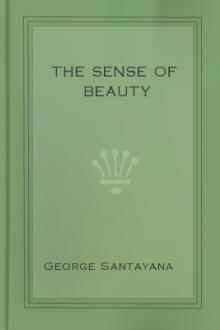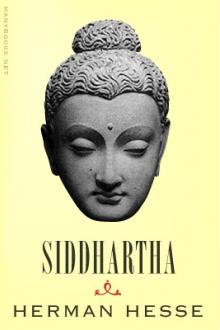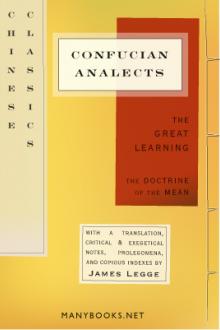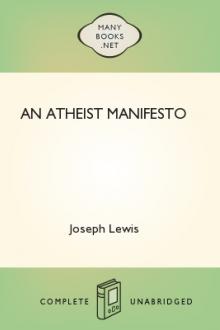The Tyranny of God
The Tyranny of God
The new and daring book on the Philosophy of Atheism, written with the fire and enthusiasm of conviction, it is literally a dramatic moving picture subject. If you enjoy reading Voltaire, David Hume, Thomas Paine and Ingersoll, do not fail to read this exposition of that ever fascinating theme by the most daring writer of them all!
Book Excerpt
rrifying dangers accompanying such a carriage, and then suffer a superhuman torture to make the delivery, through a very meager channel of her body, of this living plant which she has never seen, does not know and quite often does not want, but must absolutely bear!
Provided Nature has not made the creature too deformed and mutilated and unable to survive, the mother must, during a period of constant care and outward carriage, bear this feeble infant for another period of nine months or more!--suckling at her breast for food!
So you see that woman is not only a human being, but a fertile ground and pasture.
I have not gone into the misery of child bearing and caring, nor of the ingratitude that is so often received. I ask for what reason has Nature imposed this terrible penalty upon woman? Why?
Would you, reader, were it in your power, formulate such a method of reproduction?
I'll answer for you:
No!
But that is not all. For
Editor's choice
(view all)Popular books in Religion, Philosophy
Readers reviews
3.3
LoginSign up
I was very impressed with this book and completely agree with the author regarding the problem that evil in the world presents to the existence of a God who is all powerful, all knowing, and all good.
Although this argument has been refuted numerous time by Christian apologists I find that their answers are illogical and entirely unrealistic.
I admire the authors boldness to present such a work in the time that he did. It was still a crime in some states to be an unbeliever.
Although this argument has been refuted numerous time by Christian apologists I find that their answers are illogical and entirely unrealistic.
I admire the authors boldness to present such a work in the time that he did. It was still a crime in some states to be an unbeliever.
- Upvote (0)
- Downvote (0)
I thoroughly enjoyed this short yet powerful book. I wholeheartedly agree with the author that life is what it is and nothing more. Although these arguments have been addressed by apologists many many times over it is my opinion that their solutions are neither reasonable nor satisfactory.
The book basically discusses the problem of evil, which even today is a problem that is still being argued over. One of the latest discussions regarding evil is the book 'God's Problem' by Bart Erhman.
In my view trying to reconcile an all good, all loving, and all knowing God with the problem of evil in the world is in and of itself an exercise in futility.
The book basically discusses the problem of evil, which even today is a problem that is still being argued over. One of the latest discussions regarding evil is the book 'God's Problem' by Bart Erhman.
In my view trying to reconcile an all good, all loving, and all knowing God with the problem of evil in the world is in and of itself an exercise in futility.
06/18/2011
I was not impressed with this essay. His arguments were weak and his reasoning was flawed. Almost all of the objections he raises have been answered by most major religions. Perhaps he should have spent some time researching the opposition before he ran off at the mouth.
10/04/2010
Joseph Lewis (1889-1968) was one of the prominent organizers of the Freethinking movement of the mid-20th century. Though not as famous as some of the more vocal and sensational skeptics of his day, Lewis' impact has been felt on every freethinker in the Western World.
In 1920, Lewis became the president of Freethinkers of America (a title he would keep for the rest of his life). He later started his own publishing company, the Freethought Press Association, where he published literature about freethought written by himself and others.
The Tyranny of God (1921) is your typical anti-theist (notice I did not write atheist) screed that deals with the question of why there is evil in the world and why evil is done in the name of God and addresses them in a manner as if Christians have never dealt with these questions for two millennia. Using the fallacy of argument by outrage, this little pamphlet is a good exercise for study by Christian apologists as the topics have already been dealt with by countless Christian philosophers and thinkers and there are no new aspects to Lewis’ arguments.
However, my hat is still off to Joseph Lewis for his honesty about his philosophy. Like Nietzsche and Camus, Lewis knew and freely communicated that without the existence of an Absolute, life has no intrinsic meaning and the only logical conclusion is despair offset by one’s relationships with others (for Lewis it was his relationship with his wife).
Arguing from Lewis’ point of view (and a worldview that this particular reviewer does not share) why you would want to submerge the world into despair instead of finding comfort in a theological delusion is a purpose beyond my own understanding except that possibly “misery loves company.”
In 1920, Lewis became the president of Freethinkers of America (a title he would keep for the rest of his life). He later started his own publishing company, the Freethought Press Association, where he published literature about freethought written by himself and others.
The Tyranny of God (1921) is your typical anti-theist (notice I did not write atheist) screed that deals with the question of why there is evil in the world and why evil is done in the name of God and addresses them in a manner as if Christians have never dealt with these questions for two millennia. Using the fallacy of argument by outrage, this little pamphlet is a good exercise for study by Christian apologists as the topics have already been dealt with by countless Christian philosophers and thinkers and there are no new aspects to Lewis’ arguments.
However, my hat is still off to Joseph Lewis for his honesty about his philosophy. Like Nietzsche and Camus, Lewis knew and freely communicated that without the existence of an Absolute, life has no intrinsic meaning and the only logical conclusion is despair offset by one’s relationships with others (for Lewis it was his relationship with his wife).
Arguing from Lewis’ point of view (and a worldview that this particular reviewer does not share) why you would want to submerge the world into despair instead of finding comfort in a theological delusion is a purpose beyond my own understanding except that possibly “misery loves company.”
02/01/2010
Popular questions
(view all)Books added this week
(view all)
No books found
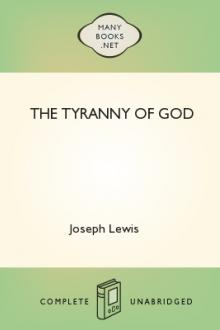
 Free Download
Free Download
















